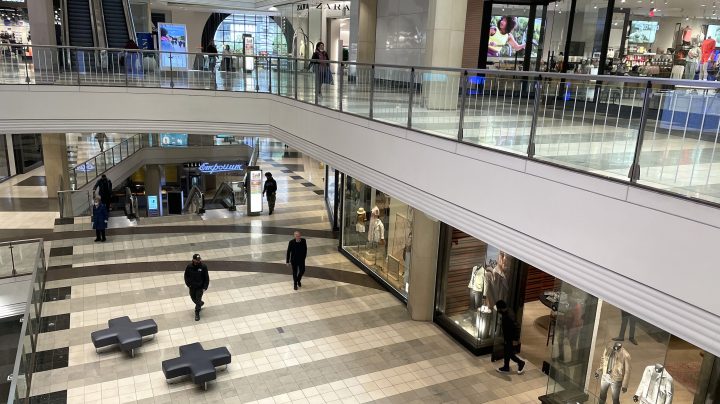
Are we back to normal? In a new normal? Economy gives mixed signals on the pandemic.
Are we back to normal? In a new normal? Economy gives mixed signals on the pandemic.

COVID cases are surging in the U.S. again, thanks to the BA.5 omicron subvariant. There’s no evidence that it leads to a higher death rate. But experts say this strain is hypercontagious.
Looking around, it’s hard to tell the effect of BA.5. A lot of people are acting like life is back to normal. But is it?
If you ask business experts whether we’re still living in a pandemic economy, they have a range of answers.
“We are,” said economist Mark Zandi. “It’s not blowing quite as hard as it was a year ago or certainly two years ago, but it’s still blowing.”
“I think we are feeling the effects of coming out of a pandemic,” said Keely Croxton, a logistics professor at Ohio State University.
“It depends,” said Charles Lindsey, who researches consumer behavior at the University at Buffalo. “Yes and no.”
Let’s go back to Zandi. He’s chief economist at Moody’s Analytics, which actually measures the pandemic economy with its Back-to-Normal Index. Its most recent reading says we’re about 10% away from being back to normal.
“I think that’s meaningful,” he said. “That’s, uh, we feel it. Do you feel normal? I don’t quite feel normal.”
One of the biggest ways COVID still affects the economy is inflation, which was above 9% in June. Zandi attributes about a percentage point and a half of that to the pandemic, mostly from lingering supply chain problems. Croxton said those widespread hitches had started to work themselves out.
“But now there’s threats of new lockdowns, and those will have direct effects on the U.S. and world economies,” she said.
Current outbreaks in China coupled with the country’s zero-COVID policy put manufacturing at risk. And even here in the U.S., the new subvariant is threatening productivity.
“We still have people that are, you know, having to call out sick and quarantine and all those things,” Croxton said.
Though if you looked at people’s behavior, you might not know it. Checkpoint data from the Transportation Security Administration shows the number of people flying is almost back to what it was before the pandemic. And spending at bars and restaurants is strong. But foot traffic tells a different story.
“There’s still some hesitancy when it comes to mall shopping, big-box retail store shopping, crowded events,” Lindsey said.
Sure, some behaviors have changed. People are shopping online and commuting less. But many people are still planning their lives around the virus. Maybe they’re lying low in the days leading up to a wedding or a trip to see the parents or a visit to their kids’ summer camp.
“People are making trade-offs, and I don’t think those trade-offs are going to go away anytime soon,” said Lindsey.
We certainly haven’t returned to normal. But it doesn’t mean we’ve settled into a new normal, either. Maybe for now, we’re just floating somewhere in between.
There’s a lot happening in the world. Through it all, Marketplace is here for you.
You rely on Marketplace to break down the world’s events and tell you how it affects you in a fact-based, approachable way. We rely on your financial support to keep making that possible.
Your donation today powers the independent journalism that you rely on. For just $5/month, you can help sustain Marketplace so we can keep reporting on the things that matter to you.


















